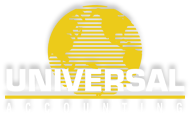
Rule of ‘72
The Rule of ’72 is an economic formula designed to inform investors of the potential return on their compounded investment. Divide 72 by the interest rate you anticipate earning and that determines how many years it will take to double your initial investment.
Let’s say you start with a modest amount, $10,000, and you decide to open an Individual Retirement Account (IRA) earning 4% interest. Here’s how you could reinvest that initial investment plus its interest to double, triple, and even quadruple that initial investment in preparation for your retirement:
|
Rule of 72 (divided by 4% interest) |
|
|
Investment |
Years to Double |
|
$10,000 |
18 |
|
$20,000 |
18 (36 since initial investment) |
|
$40,000 |
18 (54 since initial investment) |
|
$80,000 |
18 (72 since initial investment) |
|
$160,000 |
18 (98 since initial investment) |
The most important thing to recognize here is that deciding to double your investment is the only way it will ever happen. As you can see, the longer you wait to start, the longer it will take to see significant results.
IRS-Enabled Retirement Savings
Last March, the IRS detailed four ways they are helping Americans use their tax returns as a means to prepare for retirement, 3 of which can apply to the self-employed:
- Automatic enrollment. The Treasury and IRS have issued more information on their retirement and savings initiatives which enable 401(k) plan sponsors to include automatic contribution increases. For more information, visit the IRS.gov.
- Receive tax refunds as US Savings Bonds. Consider using some of your income tax return to buy up to $5000 in US Series I Savings Bonds.
- Roll over retirement distributions into IRAs or other plans. Notice 2009-68 explains how the rollover option works.
Growing Your Business for Resale
If you build your business with the understanding that eventually you can sell it to another entrepreneur, each client becomes an asset that can bring you a great return as you do their accounting. Later, when you’re ready to trade in your calculator for a golf cart, you can sell that client to an anxious wannabe contractor interested in a ready-made practice.
What it’s Worth
The rule of thumb for valuing a bookkeeping practice looks at twelve-to eighteen-month’s billings. That translates to an asking price of $120,000 to $180,000 if you are currently billing out $10,000 each month. The difference between the upper and lower price depends upon how long you have had the client, and how much work you are willing to do to ensure that the client will stay with the new bookkeeper.
This is just a sampling of how ways you can plan for retriement. It’s important that you understand all the retirement options available, not only so that you can prepare for your own comfortable retirement, but so that you can help your clients do the same. Take action now to build a better retirement. The only thing you’ve got to lose is a more comfortable future.
In the Black
The more profitable your business, the more you’ll be able to save for retirement. Allen Bostrum, president and CEO of Universal Accounting Center, has developed 9 proven principles that help small business owners like you increase profit. He’s written about these principles in his book called In the Black which is an easy-read that will teach you practical actions you can take immediately to increase your profitability. For less than $20 you could begin changing the course of your business. Order In the Black today!
Share this post: on Twitter on Facebook on Google+




